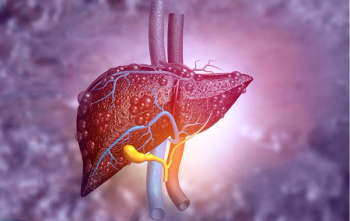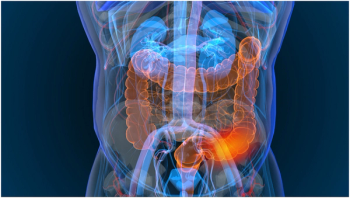
The demand for pharmacies to play a larger role in the health care ecosystem will not dissipate anytime soon.

The demand for pharmacies to play a larger role in the health care ecosystem will not dissipate anytime soon.

Sharon Rimon, NP, shares insights on the rectal administration of fecal microbiota therapy, highlighting its efficacy, ease of adoption in clinical practice, and benefits for patients.

An integrated strategy can simplify the development of antibody-drug conjugates.

Less manufacturing time could be the difference between a patient receiving this life-saving therapy vs not.

The transformation brought about by these technologies is akin to a revolution in health care.

On a flight home from ASHP Midyear in December, one pharmacist stepped up to the plate in a medical emergency.

Decentralized clinical trials are emerging as a method by which to address gender bias in clinical research.

The FDA revisited the use of phenylephrine in OTC medications and called for more substantial evidence supporting its efficacy when taken orally.

Recommendations range from contraceptives to heat therapy to holistic use of spices.

This month’s pharmacist spotlight features Jessica Hung— pharmacist at an independent pharmacy in Alabama

Monitoring metal ion concentrations and chelation therapy is hypothesized to alleviate symptoms and diseases caused by neuroinflammation.

Investigators determined the effectiveness of behavioral activation psychotherapy versus antidepressant medication management for inpatients with heart failure and depression.

Defective RNA editing in cells in the pancreas may spur the body to initiate an inflammatory attack against its own cells.

Inadequate levels of zinc, vitamin D, vitamin E, and vitamin B were also associated with risk of diabetes or diabetes-related complications.

Compared to embolization alone, the systemic treatment combination nearly doubled progression-free survival among patients with unresectable liver cancer.

Medication for attention-deficit/hyperactivity disorder and glucagon-like peptide-1 agonists for weight loss and diabetes were among the drugs most affected by shortages

The immune checkpoint inhibitor increased inflammation within the tumor, which may be linked to better response to nivolumab treatment.

Dual supplementation can reduce bone loss more than supplementation with vitamin D alone.

pCR rates improve regardless of whether patients received full chemotherapy doses.

Be of value to patients and caregivers in forming a care plan for this challenging condition

Two directors of outpatient services at Allegheny Health Network highlight the significance of Meds-to-Beds in promoting medication adherence while improving patient experience.

Providers can consider the patient’s medication history, comorbidities, or migraine type to help choose a first line treatment or refer the patient to specialized care.

Trastuzumab deruxtecan and elacestrant represent important new treatment options.

Continuing education and networking can help pharmacists stay current with the profession

Specific drugs, foods, and supplements can lead to this condition.

Pharmacy Times provides a comprehensive recap of the latest advancements in hematology and breast cancer, shared at the 2023 American Society of Hematology and the San Antonio Breast Cancer Symposium conferences

Partnering with a franchisor can provide a support system and resources for pharmacies looking to diversify revenue

Radioligands may be able to deliver radiation to advanced tumor cells anywhere in the body.

No established standard of care currently exists after spread to the lymph nodes.

Please take 10 minutes to complete the 2024 Burnout and Mental Health Survey.